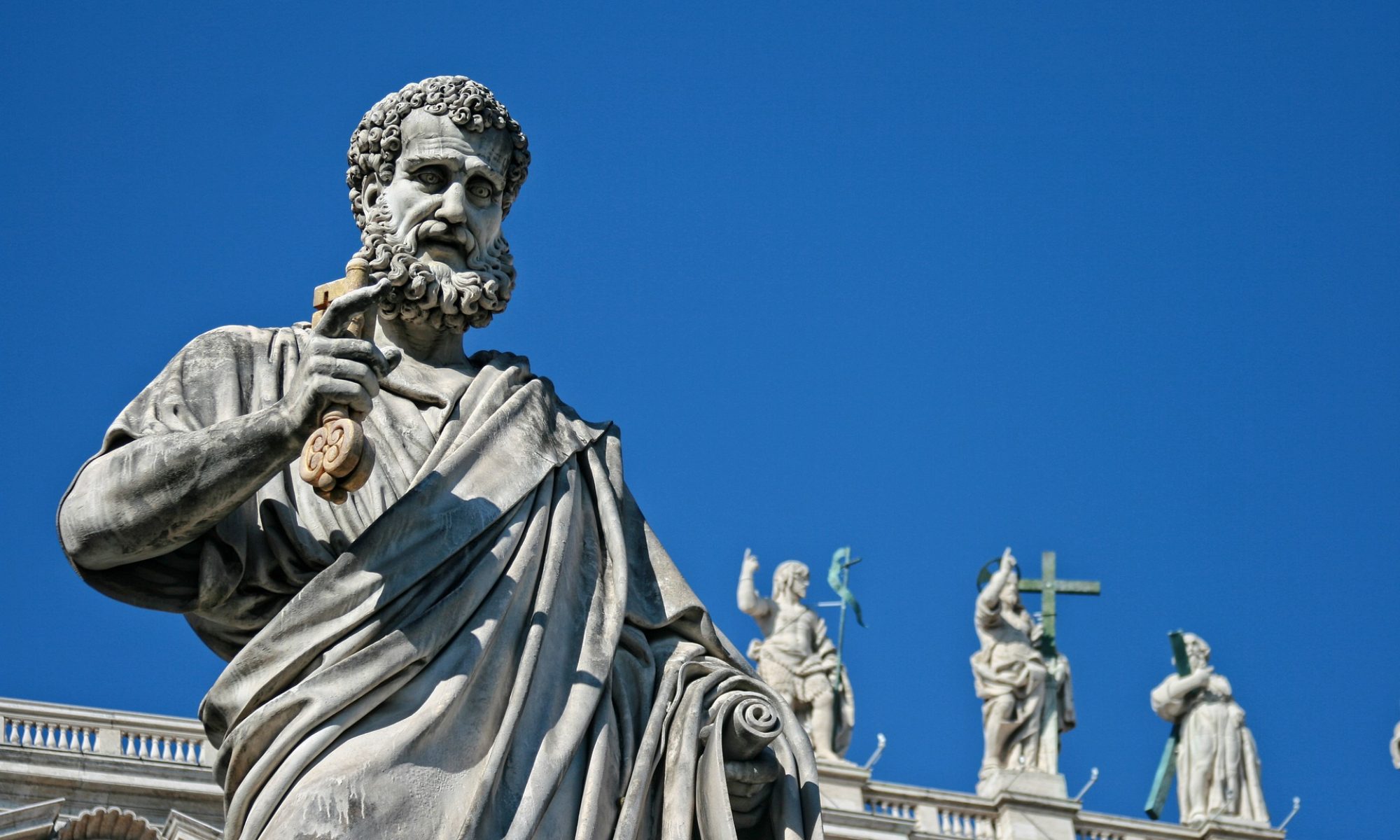October 16th, 2013
“Where ever Mary is venerated, and devotion to her takes place, there the Church of Christ does not exist”. If Karl Barth is correct, the Church of Christ was not present yesterday (October 13th) in St. Peter’s square when Pope Francis entrusted the world to Mary. The occasion was offered by the veneration of the statue of Our Lady of Fatima which had been brought to Rome for a special Marian day. Marianism is one of the keys to interpreting the present pontificate and this celebration further highlights its pervasiveness.
Entrusting the World to Mary?
If Francis appears to break with many conventions on the way he lives out his being Pope, he is very traditional as far as his Marianism is concerned. Entrusting the world to the Immaculate Heart of Mary was done by Pius XII during World War II (1942) and twice by John Paul II (1982 and 1984). Francis then follows an established XX century tradition that unites pre- and post-Vatican II Roman Catholicism. These acts are responses to the message that Mary supposedly gave to the three young shepherds in Fatima (Portugal) in 1917.
The entrustment of the world to Mary is therefore something that stems from a recent Marian vision, with no biblical support whatsoever. Entrusting the world is a very important act but one wonders whether or not Christians are instead summoned by God’s Word to entrust their lives to the Creator (e.g. 1 Peter 4:19) or to make their requests to God Himself (e.g. Philippians 4:6). The world was entrusted by God the Father to God the Son (1 Corinthians 15:27) and there is no Mariological development that can overturn this truth.
The Act Itself
What did it mean for Pope Francis to entrust the world to Mary? Basically, the Pope prayed a Marian prayer that contained a number of far-reaching statements and commitments that, biblically speaking, are proper if addressed to the Triune God, but that were instead directed to Mary.
Here is a sample: “We are confident that each of us is precious in your sight and that nothing that dwells in our hearts is unknown to you”. At this point an ordinary Christian would ask: does not the Bible say that we are precious in God’s eyes (e.g. Isaiah 43:4) but never speaks of Mary in these terms? Moreover, does this statement imply that Mary knows the depths of our hearts? Is she omniscient, thus being referred to with attributes that belong to God alone? According to the Bible, God the Father knows the secrets of the heart (Psalm 44:21), God the Son knows men’s thoughts (e.g. Matthew 9:4), God the Spirit intercedes for us with groanings too deep for words (Romans 8:26).
Here is another statement: “Guard our lives in your arms”. Mary is depicted as defending and caring for us, yet another attribute that the Bible relates to God alone. God the Father preserves the lives of the saints (e.g. Psalm 97:10) and the Lord Jesus guards those who were given him by the Father (John 17:12). It is God’s power that guards his children through faith (1 Peter 1:5). Mary has no role in this. Moreover, it is God who gathers “the lambs in his arms” (Isaiah 40:11). Mary’s arms stretched to baby Jesus but nowhere in Scripture are we told that we can look for her embrace.
A final statement of the prayer contains the following invocation: “revitalize and nourish faith; sustain and brighten hope; inspire and animate charity” as if Mary was assigned this role. The Bible teaches that believers ask Jesus to help them grow in their faith (e.g. Mark 9:24), have their hope in God (e.g. Acts 24:15) and know that love is the fruit of the Holy Spirit (Galatians 5:22).
The problem with this Papal Mariology is that it is totally unwarranted if the Christian faith is to be based on the Word of God alone. In spite of all that is said in ecumenical circles about the re-approachment between Roman Catholics and Evangelical Protestants on the Bible, this Act of Entrustment to Mary shows that their differences are not a matter of nuances, but of fundamental issues that lie at the heart of the faith itself. Thankfully, “the earth is the Lord’s and the fullness thereof” (Psalm 24:1) and there is no need to entrust it to someone else.

